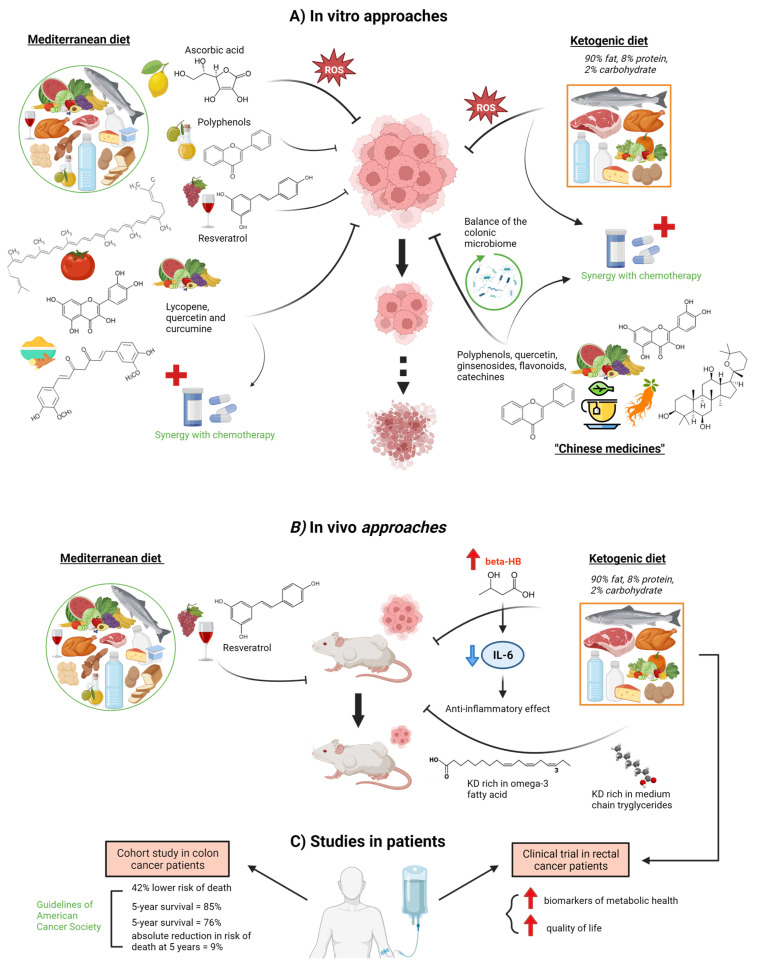Figure 1.
Effects of various diet components derived from the Mediterranean diet, Ketogenic diet, or Chinese medicine on colorectal cancer cells. (A) In vitro experiments showed the effects of Mediterranean diet components such as ascorbic acid, polyphenols, resveratrol, lycopene, quercetin, and curcumin on the proliferation of CRC cells [33,35,36,37,38]. Moreover, lycopene, quercetin, and curcumin also showed synergy with chemotherapy treatments [38]. Similarly, a ketogenic diet enhances tumor cell vs. normal cell sensitivity to radiation and chemotherapy by a mechanism involving oxidative stress [26,31]. In addition, Chinese medicines are able to improve life quality and exert anti-cancer effects by exerting synergies in CRC chemotherapy administration as well as modulating the microbiome balance, which contributes to host well-being [38,39,40]. (B) Through in vivo experiments, the inhibition of the invasion and metastasis of colon cancer by resveratrol [37] and the effects of a ketogenic diet on inflammation and cancer progression, and tumor inhibition have been demonstrated [41,42]. (C) Clinical studies showed that a lifestyle consistent with the American Cancer Society (ACS) guidelines is associated with better survival in colon cancer patients [43] as well as a better quality of life in rectal cancer patients on a ketogenic diet [44]. Dot arrow means possibility event. Created with BioRender.com (accessed on 14 April 2023).

